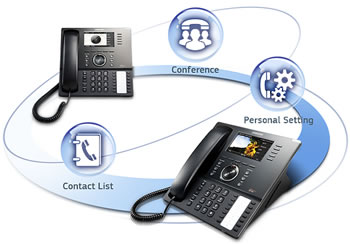Difference between VoIP and IP Telephony
Key Difference: The terms VoIP and IP Telephony are often used interchangeably. For the most part, the two terms are practically the same. If one must differentiate between the two it can be said that VoIP is a specific type of IP Telephony.
 The terms VoIP and IP Telephony are often used interchangeably and there is a reason for that. For the most part, the two terms are practically the same. Both refer to the concept of making phone calls over the internet. The details of it, and how each work might differ, but the core concept of both is the same.
The terms VoIP and IP Telephony are often used interchangeably and there is a reason for that. For the most part, the two terms are practically the same. Both refer to the concept of making phone calls over the internet. The details of it, and how each work might differ, but the core concept of both is the same.
If one must differentiate between the two it can be said that VoIP is a specific type of IP Telephony. IP Telephony refers to any service that uses the Internet Protocol, basically the internet. This refers to services such as voice, fax, SMS, voice-messaging, etc. over the internet. VoIP refers specifically to the transfer of voice over the internet protocol.
Traditionally, the public switched telephone network (PSTN) was used to make phone calls or transfer certain data. However, after the development of IP, it because quite faster and easier to transfer data and make calls over the internet. The process of transferring the voice is exactly the same as it would be on PSTN, however, instead of being transmitted over a circuit-switched network, the data is packetized, and transmitted as IP packets over a packet-switched network. Hence, IP Telephony and VoIP was ideologically the next step in the progression from PSTN.
An added benefit of VoIP and IP Telephony is that it is comparatively cheaper than traditional (PSTN) phone systems. The customer does not have to incur any additional charges than the internet connection they are already paying for, whereas with PSTN, they would have to get a telephone line put in.
 In most cases, the terms VoIP and IP Telephony are used interchangeably and are often even used as synonyms for each other, even within the industry. The only difference being between them that VoIP refers specifically to Voice over Internet Protocol, whereas IP Telephony may be used to refer to all, voice, fax, SMS, voice-messaging, etc. However, this is primarily nitpicking.
In most cases, the terms VoIP and IP Telephony are used interchangeably and are often even used as synonyms for each other, even within the industry. The only difference being between them that VoIP refers specifically to Voice over Internet Protocol, whereas IP Telephony may be used to refer to all, voice, fax, SMS, voice-messaging, etc. However, this is primarily nitpicking.
Another different is that VoIP sometimes uses an IP PBX (Private branch Exchange) to distribute calls. However, IP Telephony (as used in the industry) builds up on VoIP technologies and does not need to use a PBX.
Comparison between VoIP and IP Telephony:
|
|
VoIP |
IP Telephony |
|
Stands for |
Voice over Internet Protocol |
Internet Protocol Telephony |
|
Description |
Transfers voice and allows for phone calls over the internet. |
Transfers voice for phone calls, and other data for fax, SMS, etc. over the internet. |
|
Transfer |
Voice |
Voice, fax, SMS, voice-messaging, etc. |
|
Services |
Phone Calls |
Phone Calls, Fax, SMS, Voice-messaging, etc. |
|
Benefit |
Faster and cheaper than traditional phone systems, i.e. PSTN |
Faster and cheaper than traditional phone systems, i.e. PSTN |
|
PBX |
May require PBX |
Usually does not require PBX |
Reference: Wikipedia, Tech Target (VoIP and IP Telephony), Webopedia, Zerabox Image Courtesy: povn.com, jaisdo.com









Add new comment